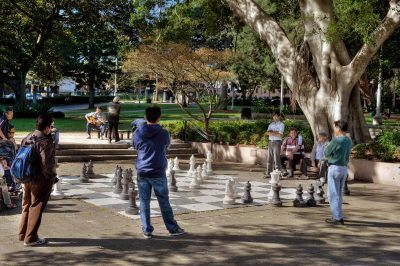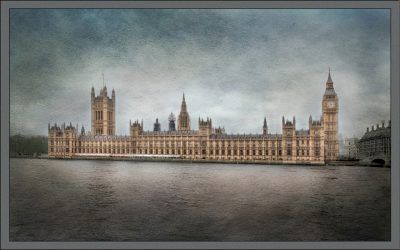by Bill Murray

News from the leisure travel world is worse than grim. More than half of the 16 million travel industry jobs in the United States have been lost. On 14 April last year the TSA processed 2,208,688 air travelers. This year that number was 87,534.
It’s the same everywhere. Da Nang saw a 98.5 percent year on year drop in visitors over Vietnam’s four day Reunification Day holiday. Ninety nine point nine percent fewer foreign visitors entered Japan in April than a year earlier. Planes are parked and ships are docked.
They outfit the American cruise ship industry in a low key shipbuilding town on the Bay of Bothnia in Finland. Turku shipyards built the world’s biggest floating petri dishes, the 360 meter long ships Oasis of the Seas and Allure of the Seas, for Royal Caribbean International.
Seventy seven thousand employees, Royal Caribbean had, until a virus as unfriendly to people as plastic to the sea torpedoed its heart, soul and balance sheet in three months flat. Maybe Turku can save its shipyard jobs by building hospital ships; Royal Caribbean may tread choppy water forevermore.
If not by sea, what if by air? Qatar Airways, purveyors of dreamy Qsuites, offers a ticket changeable for anywhere they fly within 5000 miles – at the price of the original booking. You could in theory book a business class flight from Philadelphia to Kyiv for $1600 and change it to Hong Kong. They seem to mean it.
Lest your enthusiasm take flight, Forbes stands ready with a harsh de-icing, predicting “no cabin bags, no lounges, no automatic upgrades, face masks, surgical gloves, self-check-in, self-bag-drop-off, immunity passports, on-the-spot blood tests and sanitation disinfection tunnels” and a four hour check-in process.
I don’t buy it. That’s just too grim, if only because airlines and governments alike are committed to maintaining a viable airline industry. Plus, airlines need you way more than you need them for a change. How about that.
Still, let’s not get ahead of ourselves. Phuket, Thailand’s biggest tourist island, reported no new cases on Monday and Tuesday 11 & 12 May, so on Wednesday 13 May the tourist board petitioned national authorities to reopen right then and there.
Not so fast, the government replied, as they work on a plan for “high-spending visitors from Asian countries to select areas … to avoid 14-day quarantines.” They will “have to provide a health certificate, buy health insurance, and undergo a rapid coronavirus test on arrival.” Nothing like a carefree week at the beach.
Schemes for survival in the travel industry have veered into wishful thinking. AirNorth, Yukon’s airline, with service (in normal times) to Old Crow, Mayo, Watson Lake and beyond, found itself with a largely idle catering facility. For those fortunate to live near Whitehorse, Yukon Territory, it began offering pick up and delivery of airplane food from its Flight Kitchen.
JetBlue thought nostalgia for airplane food might be a thing, too, and in early May began offering delivery of cheese and snack trays, $2.99 for three ounces of mixed cheeses, dried cherries and crackers through Imperfect Foods. Pardon the … delicious irony.
Everything about the road (and flight paths and shipping lanes) ahead is uncertain. The airline trade association IATA, which offers a comprehensive country-by-country map of travel restrictions, argues against countries imposing quarantines, and forecasts, with wistful tear and jutted jaw, that international travel will return to 2019 levels by 2023.
Ali Minai suggested on 3QD two weeks ago that “probably the biggest casualty of the pandemic will be the unbounded globalization of the last 30 years.” If he’s right, the traveler may have to become more determined.
It was only in 1920 that the first international standards for passports appeared. Before that, across much of the world, you could just go. As the virus politicizes travel with arbitrary and changeable border restrictions between countries, maybe we’ll need to negotiate our own hardy way again, reminiscent of nineteenth century travelers like Tocqueville, Darwin, Melville.
In the 1860s the ship on which Samuel Clemens traveled faced quarantine at Piraeus harbor. Refusing to be denied a visit to the Acropolis, he and three accomplices “stole softly ashore in a small boat, a clouded moon favoring the enterprise” to enjoy their own private visit to the “noblest ruins we had ever looked upon.”
I hope the need to make an effort will separate the bourbon sipping wheat from the Margarita gulping hen party chaff. That the influencer/travel-vlogger couple’s moment will carry the retrospective heft of disco. Here’s to a new generation of travelers who may also have to endeavor to arrive, rather than just to look good while they’re there.
Still, even in the best case our choices are painfully constrained for now, and in the medium term infectious Americans may not be welcome abroad anyway. So if we won’t be heading out individually anytime soon, perhaps we can consider where we’re headed collectively, as a country.
 Whatever comes next, let us proceed with good nature, for when you think about it, America has been ready for a reset. As evidence, I submit life coaches. We really had those.
Whatever comes next, let us proceed with good nature, for when you think about it, America has been ready for a reset. As evidence, I submit life coaches. We really had those.
And just after life coaches came the imperative that we all find our passions. What? You don’t have a passion?
I just Googled “passion macramé” and got 4,500,000 results. “Passion knitting” got over 28 million. “How Does Your Passion for Knitting Drive Your Life?” they asked.
Hard to deny we might have been due to reconsider what really matters.
•••••
From a distance, historic upheaval looks like a single event (the “French Revolution,” “the Great War,”). Living through the virus we learn that momentous events are actually experienced as indefinite periods of ennui-laced dislocation.
“There was no reason why the epidemic shouldn’t last more than six months; why not a year, or even more? At such moments the collapse of their courage, will-power and endurance was so abrupt that they felt they could never drag themselves out of the pit of despond into which they had fallen.”
Anticipating our darkest moments, Albert Camus was pitch perfect. Are we living Camus’s Oran? In at least one way: they made it up as they went along and surely so are we.
For the first time since the the internet, perhaps since the early 1980s when VCRs fragmented the national three-network TV viewing scheme, Americans are living a collective experience. While everyone’s attention is focused on one bloody, pernicious thing, we are having a shared conversation. In which it turns out that you are every bit as prescient as every pundit you admire, because all the gravity dawned on you, and pundits, and everybody else at the same time. It’s a reorienting, deeply satisfying thought. Take it, pocket it, savor it.
The parlor games we played way back in March, comparing B.C. and A.C. (Before Corona and After Corona) were jaunty and vague, inchoate and sometimes wild. I remember someone suggested we pause the economy. Today is Wednesday April first, tomorrow is Thursday April first and so on, until we find a way out of this mess, no liability, no fault, solidarity.
Back-footed and naïve as we were when the novel coronavirus really was novel, we Americans held on instinctively to our pocketbooks, and our election year wish lists. From the scaffold of our individual beliefs each of us tossed down partisan notions about how to build a better world: it was all the more reason for the Green New Deal, it was all the more reason to build The Wall. And we all stood together outside partisanship in collective yearning for one thing: a V-shaped recovery.
As the sweep and permanence settled in we grew more sober, less flip and less partisan in surprising places. I prize the mental image of financiers across The City spitting their creamed tea on a Friday morning back in April, when the Financial Times grew steamy under its starched collar:
“Radical reforms … will need to be put on the table. Governments … must … look for ways to make labour markets less insecure. Redistribution will again be on the agenda…. Policies until recently considered eccentric, such as basic income and wealth taxes, will have to be in the mix.”
And Hank Paulson:
“We need a more robust system of supplemental income and monthly food, rent and health insurance assistance. In the end … wealthier Americans will have to pay higher taxes.”
“meaningful changes, like rebuilding our education system and providing skills training, affordable health care policies, substantial infrastructure investment, and sensible immigration reform and climate policies.”
Those words associated with those names. Pocket that, too.
•••••
One of the most audacious acts of leadership in the last fifty years was Margaret Thatcher’s reconfiscation of the Falkland Islands by swashbuckling flotilla. Conjure if you can any evidence of similar resolve about a pandemic – about anything – in a Boris Johnson or a Donald Trump administration.
Everyone (except Michigan manbabies) realizes that the way to the light is science, and as scientists enjoy a bit of a rehabilitation they debunk a germ of political leadership exemplified in my mind by Britain’s Michael Gove, who, in the run-up to the Brexit vote, declared that “the British people “have had enough of experts.”
 Today Mr. Gove stands naked and still declaiming to the British people as Chancellor of the Duchy of Lancaster. (Whatever.) Turkey’s Erdogan regime has purged 15,000 health care professionals. In Russia, Orthodox patriarch Kirill “blessed Moscow … to ward off the coronavirus, circling the city in a motorcade with a holy icon and reciting prayers” in a Mercedes SUV. Now that the tide is out we recognize the untanned backsides of this entire cadre of expert-shamers as ugly impediments to the corrective path ahead.
Today Mr. Gove stands naked and still declaiming to the British people as Chancellor of the Duchy of Lancaster. (Whatever.) Turkey’s Erdogan regime has purged 15,000 health care professionals. In Russia, Orthodox patriarch Kirill “blessed Moscow … to ward off the coronavirus, circling the city in a motorcade with a holy icon and reciting prayers” in a Mercedes SUV. Now that the tide is out we recognize the untanned backsides of this entire cadre of expert-shamers as ugly impediments to the corrective path ahead.
Venal leaders infect our world. Trump, Orbán, Kaczyński, Bolsanaro, Duterte, they’re all shabby, desultory symptoms of the dire state of democratic liberalism. In light of the calamity before us, that we have brought the lot of them to power in this moment is doubly alarming.
In the days before American presidents flew into crises to thump rolls of paper towels into stricken crowds, American aid was assumed across the world, earthquakes, tsunamis, famine, Ebola, no matter. Against that history, America’s actions right now tote up how much moral authority it will have to shape the world that comes afterward.
Trying to poach a German vaccine company is not a good start. What we want now is honesty. Just tell us what you think. No marketing.
A famous Lenin quote:
“There are decades where nothing happens, and there are weeks when decades happen.”
A famous Hemingway quote:
“How did you go bankrupt?” Bill asked.
“Two ways,” Mike said. “Gradually and then suddenly.”
The fashion is to declare this a history-accelerating, red tape-cutting, vividly elucidating moment of blown down barriers and rare opportunities to reshape society to the benefit of the essential worker.
Dani Rodrik, for one, doesn’t expect systemic change. He thinks countries are largely responding in character:
“China’s response was typically Chinese: suppression of information about the prevalence of the virus, a high degree of social control, and a massive mobilization of resources once the threat became clear. Turkmenistan has banned the word “coronavirus,” and so on.
“Countries have in effect become exaggerated versions of themselves,” he writes.
I expect he’s right. Exclamations under duress by the FT, Paulson and Dimon notwithstanding, it’s hard to imagine a mass, sustained MMT conversion among the masters of the universe. Anton Jäger persuades me that “If the United States implements public healthcare after the crisis, it will be to keep the labour force alive and docile, not out of humanitarian or socialist concerns.”
I fear that for all the best efforts of Swedish teenagers and Brooklyn Congresswomen, it is more likely that the agendas of well-funded, well-connected, already in place interests will prevail. Think the American Enterprise Institute, The United States Chamber of Commerce, Americans for Prosperity, the CATO Foundation.
In 1938 John Maynard Keynes wrote that “We were not aware that civilization was a thin and precarious crust erected by the personality and the will of a very few, and only maintained by rules and conventions skilfully put across and guilefully preserved.”
Now I think we are. After the Rodney King beating I watched white people, jaws set, streaming north on Peachtree Street out of downtown Atlanta, some with their car windows smashed. I knew of the thin veneer of civilization, at least from that day in 1991.
Lawrence Osborne wrote of it. In Hunters in the Dark he declared Bangkok “a shop window with no glass.” Of his main character: “The drawn-out economic crisis was gradually overwhelming the once eternal-seeming middle class and eroding it day by day. He was one of the eroded.”
Christopher de Bellaigue has called history “Not science at all, really, but the landscaping of churned ground so it looks nice.” President Trump stomped and backfilled and teetered and dangled for several painful, unsteady weeks before he finally fell in a 29 March press briefing, taking credit for 100, 200 thousand deaths as a great victory. Said if he hadn’t been in charge it would have been two million. That was the same night his Tonto, vice-president Pence, called healthcare workers “the hands and feet of a grateful nation.”
It’s not unreasonable to expect we’ll spend the next decade getting back to something like the status quo ante, as we’ve just done in the post-Great Recession decade. People over age fifty may never again see a world as wealthy as it was six or eight weeks ago, and I say to them, stamp February hard into memory before it fades. Generation X may be uniquely cursed for a lifetime.
I fear that this means – among many other things – that rather than being hastened by the virus, the Green New Deal is more likely on hold. We’ve all seen the satellite imagery, Welsh city goats, clear waters instead of used condoms in Venetian canals. Let us hope the virus can help the planet self-correct, if just a bit, or at least incrementally slow its death march.
Leaders usually make decisions based on prevailing economic dogma. Whichever septuagenarian becomes the next American president, fundamental change may need to wait for a generation of as yet unelected leaders that makes policy through the formative lens of coming of age just now, in the pandemic.
 In the meanwhile we should press for achievable changes where forward looking local leadership is in place. Mayors Hidalgo in Paris, Martínez-Almeida in Madrid and Sala in Milan with their bicycle lanes. Tel Aviv, Portland, Minneapolis, Calgary and other cities closing streets to encourage walking. If central city commercial real estate founders, cities everywhere can convert asphalt parking lots to green space.
In the meanwhile we should press for achievable changes where forward looking local leadership is in place. Mayors Hidalgo in Paris, Martínez-Almeida in Madrid and Sala in Milan with their bicycle lanes. Tel Aviv, Portland, Minneapolis, Calgary and other cities closing streets to encourage walking. If central city commercial real estate founders, cities everywhere can convert asphalt parking lots to green space.
For now, in every weary castle keep across the land, we can try to imagine an improved, softer, more humble society, one in which we all pull together. Brian Eno says solidarity is craft, something we have to work on but something we can get better at.
Perhaps, and we’ll see. But if we can’t reconcile in the searing heat of an untreatable pandemic that has killed nearly 350,000 people in a single spring then, as the travel writer Kapka Kassabova wrote, “Some things are beyond repair, and that’s what tears are for.”
